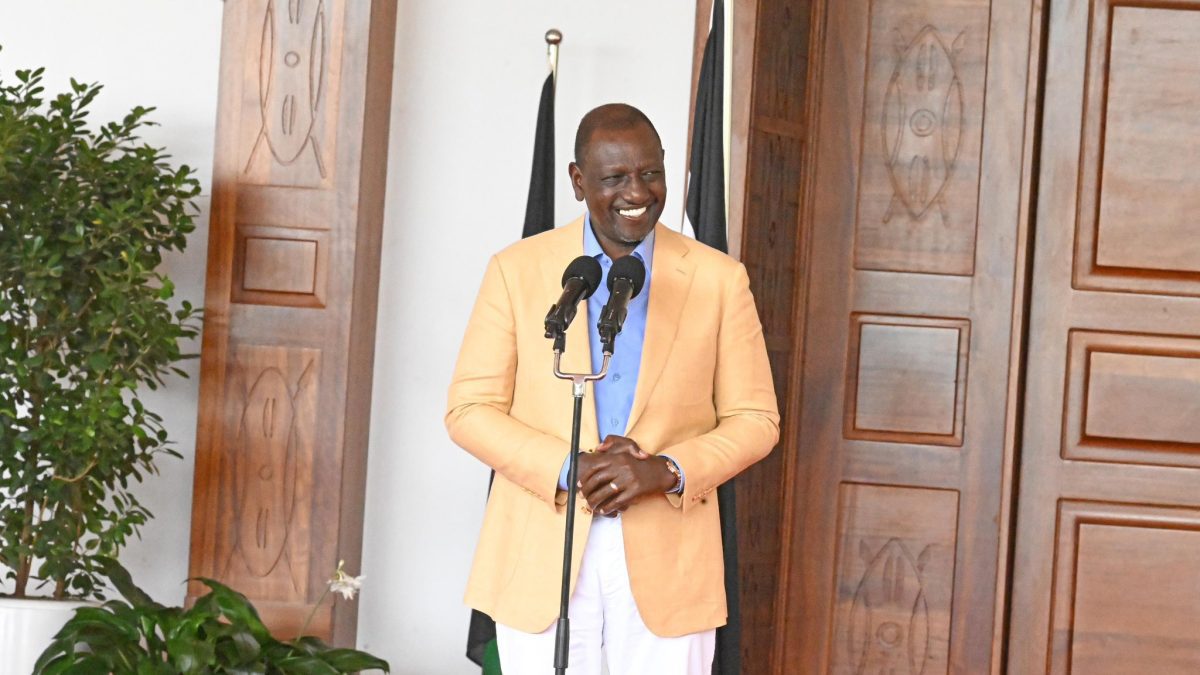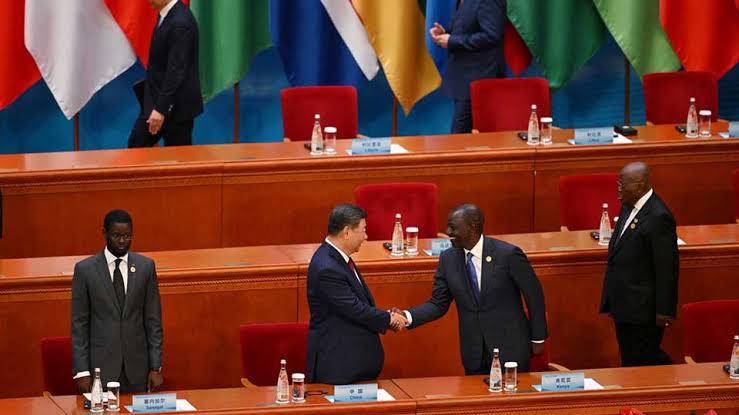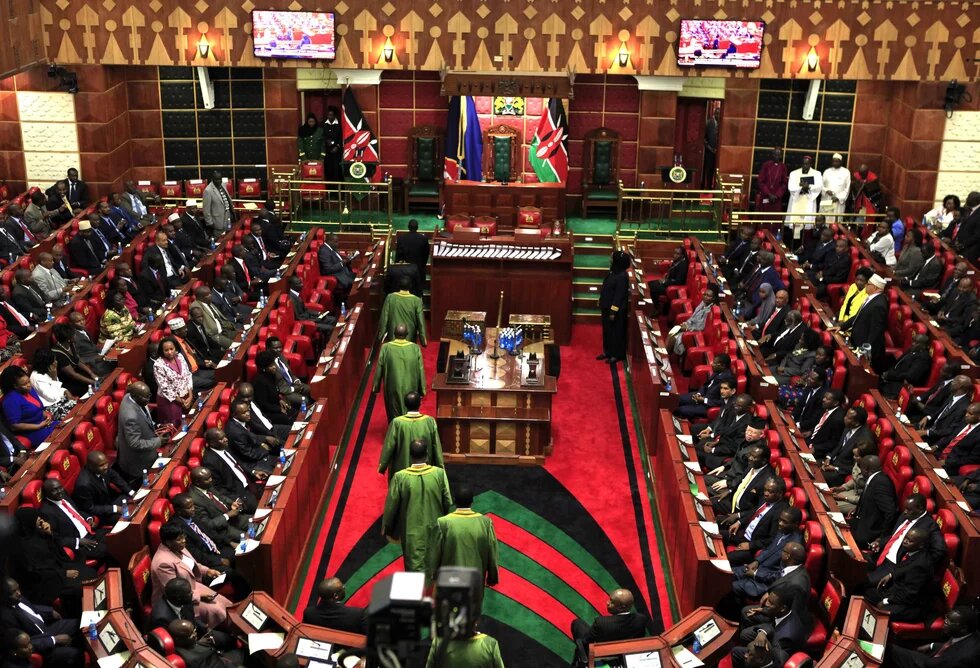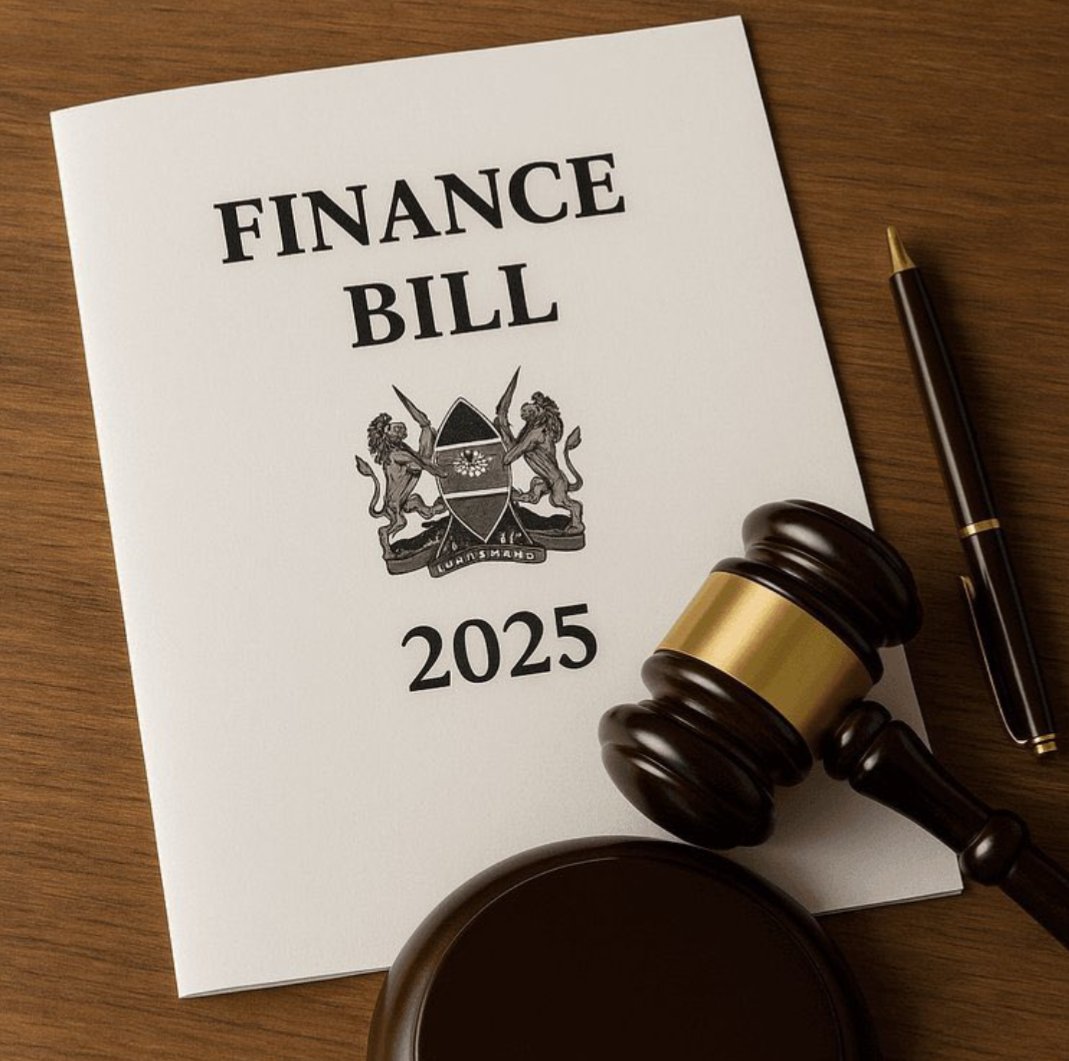-
 THE HIGH COURT FREEZES KENYA PIPELINE COMPANY ACCOUNTS OVER 500 MILLION DEBT
THE HIGH COURT FREEZES KENYA PIPELINE COMPANY ACCOUNTS OVER 500 MILLION DEBT
-
 RUTO APPLAUDS POLICE EFFORTS IN MAINTAINING PEACE
RUTO APPLAUDS POLICE EFFORTS IN MAINTAINING PEACE
-
 Netanyahu Accepts Trump-Brokered Ceasefire Deal
Netanyahu Accepts Trump-Brokered Ceasefire Deal
-
 ACTIVIST MORARA KEBASO QUITS POLITICS
ACTIVIST MORARA KEBASO QUITS POLITICS
-
 KENYA AND CHINA FINALIZE LOAN DEAL
KENYA AND CHINA FINALIZE LOAN DEAL
-
 Officers, Civilians Charged in Death of Blogger Albert Ojwang in Police Custody
Officers, Civilians Charged in Death of Blogger Albert Ojwang in Police Custody
-
 Missile Blasts Over Doha After Qatar Shuts Airspace Amid Iran–US Escalation
Missile Blasts Over Doha After Qatar Shuts Airspace Amid Iran–US Escalation
-
 KRA ANNOUNCES NEW CHANGES TO PAYE FILING SYSTEM
KRA ANNOUNCES NEW CHANGES TO PAYE FILING SYSTEM
-
 Eric Mutinda, MMU Student Accused of Girlfriend's Murder, Declared Unfit to Stand Trial
Eric Mutinda, MMU Student Accused of Girlfriend's Murder, Declared Unfit to Stand Trial
NATIONAL ASSEMBLY TICKS THE 2025 FINANCE BILL

The National Assembly has officially ratified the Finance Bill, 2025, following intense deliberations that saw lawmakers shoot down a number of controversial proposals seen as punitive to taxpayers.
The vote was cast during the House’s afternoon session on Thursday, June 19, after MPs concluded debate and finalized the Third Reading late Wednesday night.
Now awaiting presidential assent, the approved Bill is expected to generate approximately KSh24 billion—a significant drop from the initial KSh30 billion target outlined by the National Treasury. This forms part of the projected KSh3.316 trillion ordinary revenue for the 2025/26 financial year.
Chairperson of the Finance and Planning Committee, Kimani Kuria, noted that this year’s Bill reflects the lowest revenue target from such legislation in the past three years. He compared it to previous revenue-raising frameworks: KSh22 billion in 2022, KSh211 billion in 2023, and a massive but rejected KSh344 billion from the ill-fated Finance Bill of 2024, followed by KSh49 billion under the Tax Laws Amendment Act of the same year.
Kuria emphasized that the adjustments made in the 2025 Bill are intended to balance revenue collection with fairness and public sentiment.
Among the notable changes, Parliament blocked a contentious proposal that would have granted the Kenya Revenue Authority (KRA) unrestricted access to taxpayers’ personal records. Lawmakers argued that such a move would violate Article 31(c) and (d) of the Constitution, which upholds citizens’ right to privacy. They pointed out that current laws—specifically Section 60 of the Tax Procedures Act—already allow data access through judicial oversight.
Another proposal to widen PAYE (Pay As You Earn) tax bands to rates ranging from 10% to 30%, while giving the Treasury Cabinet Secretary powers to adjust rates in line with inflation, was also struck down.
MPs further rejected a push to reclassify certain goods from zero-rated to exempt, maintaining tax-free status for locally assembled phones, motorcycles, e-bikes, solar batteries, electric buses, animal feed inputs, and bioethanol vapour stoves.
In the area of economic incentives, Parliament preserved the 15% corporate tax benefit for firms engaged in local vehicle assembly and large-scale residential housing projects. Similarly, legislators retained the KSh500 per litre excise duty on Extra Neutral Alcohol (ENA) used by licensed alcoholic beverage manufacturers—offering some relief to an already heavily taxed sector.
A notable win for retirees came as the House approved a complete tax exemption on all pension payouts, whether received as lump sums or in installments. MPs also repealed outdated clauses to improve the legal clarity of tax administration.
On digital taxation, lawmakers endorsed a broader scope for the Significant Economic Presence Tax (SEPT)—now covering websites and electronic platforms, not just digital marketplaces. However, they dismissed a proposed KSh5 million annual threshold, citing enforcement gaps and potential for tax evasion.



Comments (0)
No comments yet. Be the first to comment!